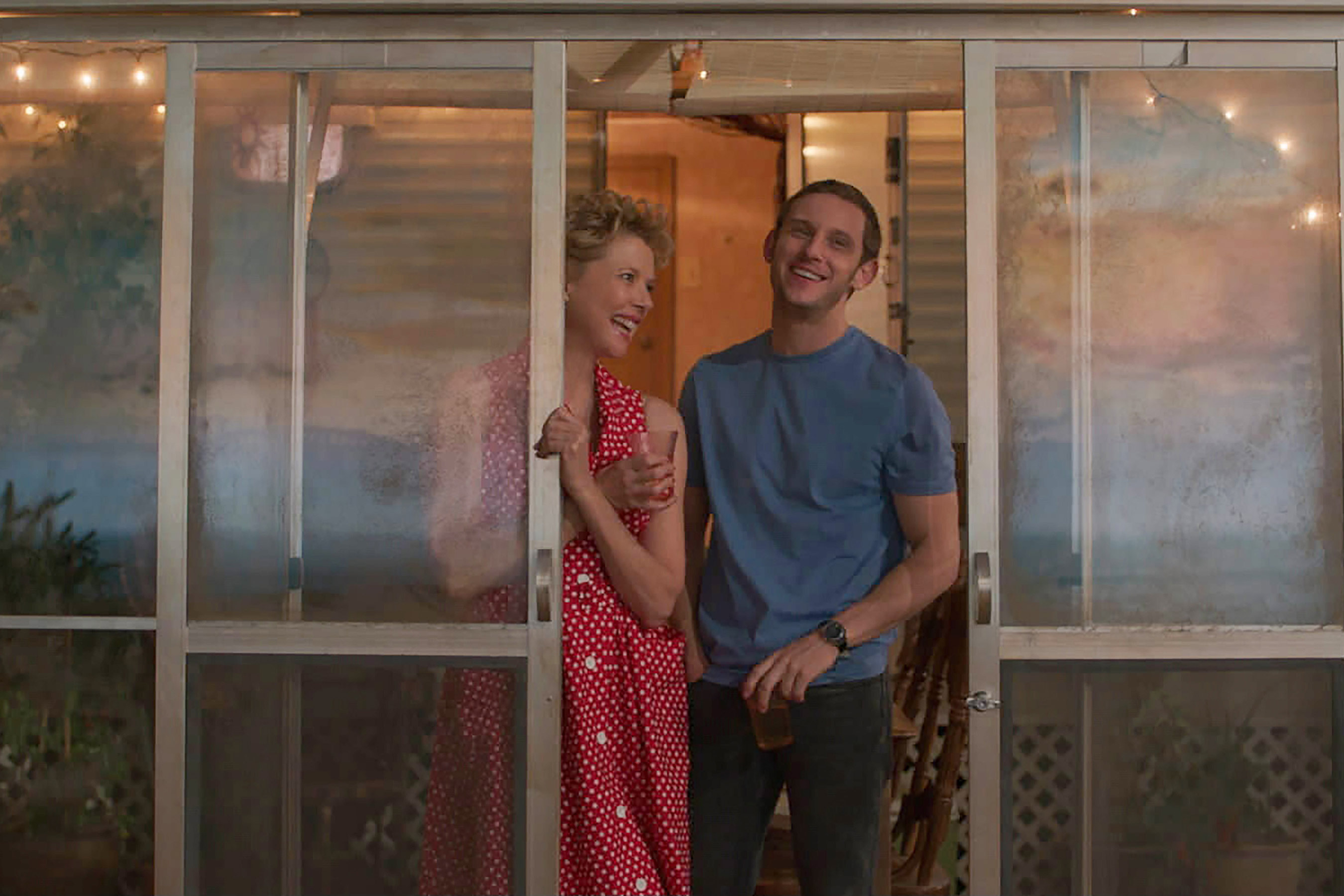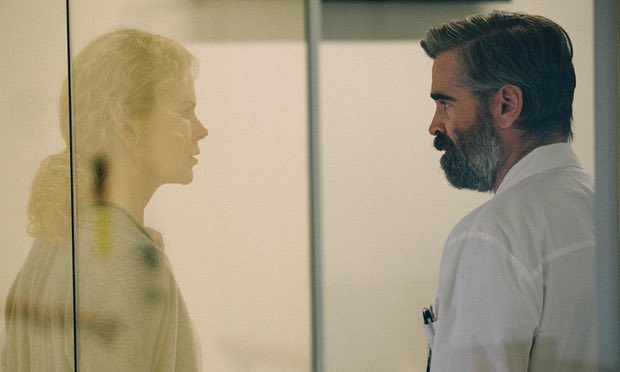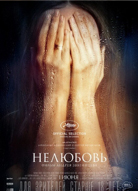Pivotally positioned in October, the BFI London Film Festival boasts the distinction of having some of the most feted films of the year, champions newcomers and not without its stalwart festival curiosities. On the ground this year was Film Experience contributor Seán McGovern who saw only a fraction of the films on offer, but nonetheless a taste of potential Oscar contenders.

Call Me By Your Name
Worried that I would be tranquillised by the hype, I nonetheless could not resist it. Yes, it's a film about gorgeous people of immense privilege, but who can dismiss how hard it is to successfully capture the furtive horniness and confused intensity of young love? Timothée Chalamet's Elio teeters between brazenness and vulnerability, and Armie Hammer captures a strange aloofness that is hard to do on screen. It actually made me want to have children - just so I could grow up and be Micheal Stuhlbarg.
Oscar chances: Director, Picture, Best Actor (Chalamet), Supporting Actor(s) (Hammer, Stuhlbarg), Adapted Screenplay, Cinematography, Original Score. Whether Academy voters embrace two LGBT films in a row is another thing.
Six more films after the jump...
A Mother Brings Her Son to Be Shot
Presented without fanfare but to sold-out screenings, Irish documentarian Sinéad O'Shea delicately amplifies an aspect of post-Good Friday Agreement Northern Ireland that many of us from the Republic either don't know, or would rather not. The warring sides of Republicans and Unionists has been replaced by a thuggish drug warfare between dissident Republicans. Families are routinely complicit in kowtowing to gang leaders: the title of the film is not an exaggeration. But what is truly shocking is how corruption, coupled with vast amounts of drugs, have filled the void in a political vacuum – disconnected from the Republic, and alien from the rest of the UK, neither side seems able to solve these Troubles.
Oscar Chances: Not on the Academy's longlist, and probably without a qualifying run to begin with, but Sinéad O'Shea has plenty of opportunities ahead.

Film Stars Don't Die in Liverpool
Watching Film Stars Don't Die in Liverpool made me remember how great 20th Century Women was, and that was depressing. Annette Bening, given the best material of her career, was locked out of a category and an Oscar she truly deserved. With Film Stars...it feels like the campaign she was denied has been given to her for a film that doesn't merit it. Bening is rapturous on screen, as one could expect from an éminence grise of acting, but her commanding presence cannot overcompensate for a film without a story. At first, the film tantalises with an absurd disco dancing sequence, ready to take us on a freewheeling May-December ride. Instead, we have to be regularly reminded that this woman is Gloria Grahame as without prodding, it's hard to remember it.
Oscar Chances: Best Actress – and it pains me to say this – the material feels too thin to really justify it. But the Academy is known for consolation prizes...
Antonio Lopez: Fashion, Art, Sex, and Disco.
Antonio Lopez was a 1970s fashion illustrator whose work was featured in some of the most prominent magazines of his day. He pioneered a technique both as a stylist and illustrator, breaking away from a tired tropes of waning haute couture. The documentary is sensuous and sexy and pumping full of disco music. It's not just about his work, but also the several men and women who who were in love with both his body and his mind. Grace Coddington, Karl Largerfeld and Pat Cleveland are among those who recount their run-ins with Lopez, and in particular, Jessica “Languid” who recalls being romanced by notes all over Paris, looking for a particular American girl called Jessica. She was there studying mime, as if that could possibly be a surprise.
Oscar Chances: Not on the Academy's longlist, sadly.
Battle of the Sexes
Isn't it always a bit peculiar when star-studded crowd-pleasers get slotted in to film festivals? It's a definite reminder that commerce happily masquerades as art when it wants to. Released in the USA prior to it's UK premiere, we Europeans must be easily duped. But the film is so zippy and enjoyable, and Emma Stone and Steve Carrell are so winning in their roles. The real power serve, however, are the tender moments of queer solidarity between Stone's Billie Jean King and and tennis costumier Ted Tinling. Friendships between lesbians and gay men are rarely appreciated, and the emotional impact is felt. I won't begrudge Stone an Oscar nomination - at least not for this.
Oscar Chances: Best Actress, quite easily, but will the rest just be viewed as slick, enjoyable entertainment?

The Killing of a Sacred Deer
If The Lobster was Yorgos Lanthimos's totally twisted take on the romantic-comedy, Sacred Deer takes the weight of Greek tragedy and nestles it somewhere within the Final Destination franchise. With a twist of Haneke's Funny Games and the rest all his own, Lanthimos reminds us why Colin Farrell is a serious actor and why Nicole Kidman is, and remains, the bravest actress in cinema. Farrell is a cardiologist with a perplexing and intense friendship with teenager Martin, a seemingly endearing menace, who imparts the method of ending a curse that inflicts the doctor's family. While the Lobster was unique in it's cynicism of love and partnership, The Killing of a Sacred Deer feels more invested in playing with genre and technique, leaving as much of a bitter aftertaste, but without the sweetness you should be promised first. North Dubliner Barry Keoghan is astonishing as Martin, whose eyes are like another actor sharing the screen.
Oscar chances: What category do you place something intense, difficult and European? Original Screenplay, of course!
And lastly...
 Loveless
Loveless
How can one story be a universal tragedy and a damning indictment of the soul of an entire nation? Andrey Zvyagintsev, previously an Oscar nominee for Leviathan (2014), subtlety and incisively enters the modern Russian family home, where we meet Zhenya and Boris: carving up each other as well as the value of the property, bitterly wishing to be done with their marriage as young son Alexey mouthes silent screams of anguish. While Zhenya is busy Instragramming, Boris is dopily giving fatherhood a second attempt, unaware that their own child is missing. With more layers than a Medovik tort, Zvyagintsev's story feels as vast as the land it inhabits, with enough room for dark, belly laughs amid the monolithic pain. Loveless is like no film I've ever seen before.
Oscar chances: It's Russia's entry for Foreign Language Film – and worth remembering that art is a powerful and transgressive tool against authoritarianism. Personally, I would give it every award possible.